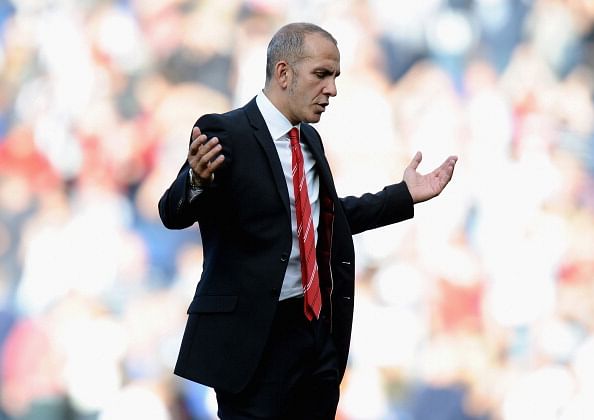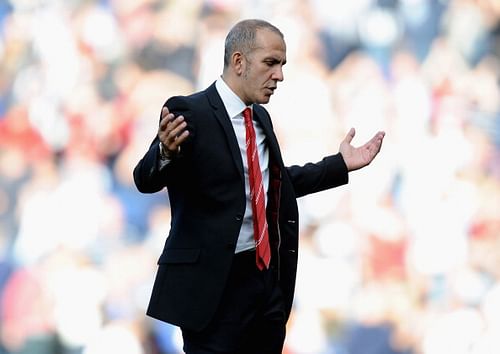
Sunderland are equally to blame for Paolo di Canio's sacking

Paolo Di Canio gestures at the end of the Barclays Premier League match between West Bromwich Albion and Sunderland at The Hawthorns on September 21, 2013 in West Bromwich, England. The Italian became the first managerial casualty of the new season. (Getty Images)
The fall of Paolo di Canio was as predictable as it was ignominious. You could see it coming from afar, and possibly, so did the Italian: the same way a groggy, punch-drunk boxer sees a cocked fist heading his way in slow motion, tauntingly unpreventable, just before it delivers the knockout blow with irresistible finality.
For all the havoc he had wrought, though, di Canio perhaps did not see the ‘haymaker’ approaching. When Sunderland owner Ellis Short ended the short and not-so-sweet era of the Italian, he did so abruptly. No one genuinely believed he would be sacked so soon.
Of course a return of one draw and four defeats from his first five games (five relatively easier games, mind you, given that Liverpool and Manchester United are their next two opponents) was never going to cut it at this level.
But even in the Premier League, managers are usually given at least two or three months to prove their worth. Somewhere, there was an innate belief that di Canio would fight it out, that the changes he had effected would perhaps bring about some improvement.
Part of the reason was that the man exuded confidence – a bit more, we might note, than anyone else – about his own abilities.
“One day we will discover that I’m either a fantastic, good or normal manager,” declared the former Juventus, Milan and Lazio player recently. He had himself made that discovery several months earlier. “A very good manager,” he declared in April.
His belief was no doubt fostered by success at his last club Swindon Town, which di Canio led into League One. But that also raises several questions about Short’s handling of the whole affair: why the sudden loss of faith, when di Canio was already well known for being abrasive? To put it another way, why hire someone only to sack them six months later for being the person they are?
There were several tell-tale signs at Swindon about his explosive personality and the impact it would have on his players. The Robins’ CEO, Nick Watkins, sardonically described the Italian’s style as ‘management by hand grenade’.
“He spoke very much from the heart and along the way created a bit of collateral damage that I had to repair. Often I refer to it as management by hand grenade. Paolo would chuck a hand grenade and I would do the repair work at the end, like the Red Cross.”
‘Management’ is the key word here. At Sunderland, di Canio declared that he would take on the title of head coach rather than manager, because that better reflected his job profile. For once, he was aware of his own limitations. Managing people is definitely not his forte as he lacks the tact and the restraint to handle delicate egos.
To a large extent, it looked as if he was playing to the gallery; pandering to fan sentiment on overpaid, underachieving players and shaming them into on-field effort through media criticism. But when he began calling them ‘empty in the brain’ and gave the popular John O’Shea a public dressing down, he had effectively wiped out all his support: management, fans and – most importantly – players.